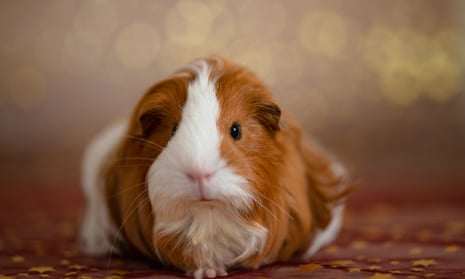The great pet adoption boom peaked in April and May 2020 with nearly one in five US households – 23 million in all – giving animals new homes during the pandemic, according to the American Society for the Prevention of Cruelty to Animals. But as our return to a sense of normalcy has coincided with historic inflation rates, pet owners have been forced to re-evaluate their priorities.
Pet food costs have outpaced general inflation by 0.6%, and a single surprise veterinary bill can launch 42% of pet owners into debt, according to a recent Forbes study. As a result, shelters around the US are seeing an increase in owner surrenders and a steep decline in adoptions with no sign of improving.
“We’re packed right now. We’re putting animals in cages in the hallways,” explains Katy Hansen, director of marketing and communications at New York’s Animal Care Centers (ACC), a no-kill shelter that has seen a 25% uptick in surrenders this year over last. “It’s really sad, people crying, it’s a part of their family. But if you’re choosing between feeding your family and feeding your pet, your choices are limited.”
Some have asserted that the uptick in surrenders can be blamed on a kind of “buyers’ remorse” following the adoption boom, though shelter professionals disagree, offering instead that pet owners are just desperate to cut costs. Most people who adopted during the pandemic have kept their pets – 90% of dog owners and 85% of cat owners, to be exact (as of 2021). There is, however, one animal with less staying power.
“Guinea pigs purchased during the pandemic are being returned in droves,” Hansen explains. “On average, at this point in the year, we’ve taken in 200 guinea pigs. This year we’re over 650.”
There are various culprits for the sudden guinea pig influx, but almost all roads lead back to pet stores. Chain pet stores and mom and pop shops alike stock a revolving door of them – the furry rodents are easily bred and sell for about $40.
Unlike animal shelters, pet stores don’t vet potential buyers who are probably thinking a smaller animal that is content to spend its life in a confined space would require less work, energy and money than a dog or cat.
But guinea pigs need a decent-sized enclosure along with near daily changes to their bedding and hay. Vet bills can also be more expensive since it’s difficult to find a provider with the appropriate expertise. Many potential buyers or adopters approach guinea pigs as a temporary hobby rather than a substantial investment of time and money (they can live up to 10 years). The problem is that owners become bored with them.
ACC is the only shelter in New York accepting guinea pigs. Last year it worked with the organization Voters for Animal Rights to garner support for a bill that would ban the sale of guinea pigs in New York pet stores. So far the hard work is done – the bill has received the necessary supermajority vote – but the city council is stalling in the final step of the approval process. ACC is desperately hoping for a hearing soon. Overall, shelters are in need themselves, experiencing staff shortages, veterinary care shortages, reduced adoptions and reduced interest in foster care.
Even if ACC weren’t plagued by returns of guinea pigs, it would still be overwhelmed by the more expected cats and dogs. “All these surrenders coming in and it’s really hard on staff. When someone walks in with their pet and you see the look in the pet’s eye, not knowing what’s happening but you know what’s happening – it’s heartbreaking,” says Hansen.
While surrenders are up, overall intake is not higher than pre-pandemic numbers. But there has been a substantial drop in adoptions, which compounds the overcrowding issue. “We have a high population at all times,” Hansen explains. This is partly due to the backlog of animals needing to be spayed and neutered across the country after services were slowed down or completely stopped during pandemic shutdowns.
“I’m not sure there’s a light at the end of the tunnel,” admits Hansen. But she says there are ways, even just through small acts of kindness, to make a contribution. “We need support from the community. We need people to volunteer, we need people to share the profiles of our animals. If you have a neighbor who’s struggling with their pet, help them! If you have an elderly neighbor, walk their dog, offer to get pet food.”
And it’s not all grim. Most shelters around New York have remarkably high success rates when placing pets in forever homes. ACC boasts a 93% placement rate for cats and dogs and 96% for guinea pigs – numbers that make the hard work worth it. Before getting into animal care work, Hansen worked on Wall Street for 26 years – but today choosing the shelter over the stock market is a no-brainer. She says: “I’ve never felt more fulfilled than working in animal welfare. It really does make you feel good about your path in life.”










